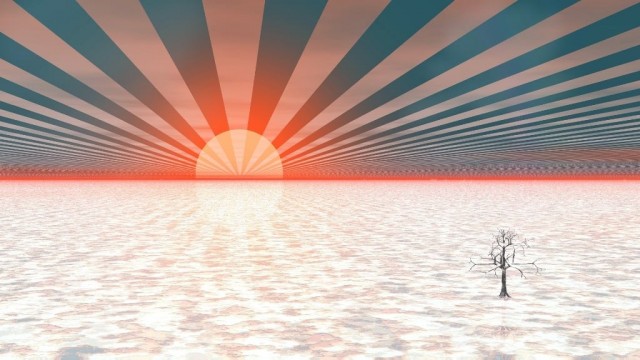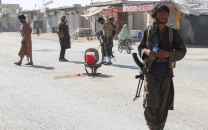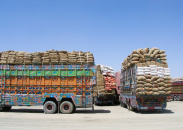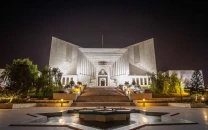Global warming altering sea as we know it
Rising sea level, warmer water and acidification radically reshaping coastline communities, marine ecosystems

PHOTO: FILE
The changes, seemingly minimal, have devastating effect on the coastal human population as well as marine ecosystems which are sensitive to even the most modest temperature adjustment.
Biodiversity in danger: Rapid global warming threatens ecosystems
The warming of the sea, a result of heat-trapping gases, leads to extreme weather events such as cyclones; the rising water level, a result of fast melting glaciers, inundates habitats; and acidification, result of atmospheric carbon dioxide mixing in the water, hurts many marine organisms.
Causes of change
Speaking about the rise in sea level, Ali Dehlavi - environmental and resource economist working with WWF-Pakistan - says it has happened partly because of monsoon, cloudburst and glacial melt.
Explaining the change further, Naseer Memon - development professional and chief executive at Strengthening Participatory Organization (SPO) - says warming of our environment is causing glaciers to melt faster which is increasing the flow of water in our rivers. “Parts of Himalayas are going through unusually fast melting of ice cover and causing more frequent floods in the region. It is expected the phenomenon will gain more momentum in the coming years. Karachi is among the vulnerable coasts due to this phenomenon,” he explains.
Erratic weather events more likely
Negative effects
As the sea gets warmer, Dehlavi says marine species move to cooler location or at worse cease to exist. In Pakistan, he says the fishermen know their fishing ground and changes in water jeopardises their livelihood as fish move away to a different location. “A country which had been profiting from a certain species of fish will one day find that the animal has moved to the neighbour’s jurisdiction,” Dehlavi explains.

The WWF official warns a warmer sea will have negative effect on the coastal human population as well as the marine diversity.
With the rise in sea level, SPO’s Memon says the shoreline of Karachi will be exposed to sea incursion. “Sea incursion is taking place due to lack of fresh water flows to Indus Delta as well as reduction in the natural shield of mangroves forests. In case of any cyclone or tsunami, Karachi’s vulnerability will increase manifold,” he cautions.
According to estimates available to Memon, coastal areas of Thatta and Badin have lost approximately two million acres of land to sea during recent decades. Additionally, the SPO official says the marine ecosystem is also enduring various stresses due to rising sea level as coastal habitats for plants and animals are inundated.
The negative effects are not just limited to that as Umama Binte Azhar, an environment expert at NGO Leadership for Environment and Development (Lead), says changes in the sea also cause the spread of marine diseases and increase the intensity and frequency of extreme weather events such as cyclones and tsunamis.
Mitigation
With changes in climate a trans-boundary issue, WWF’s Dehlavi says countering it demands collective efforts. The point of origin, he says, is not important.
Rise in average temperature: Longer summers, warmer nights and extreme weather events
Through climate compatible adaptation measures and interventions, Azhar stresses the impacts of climate change in the coastal areas can be minimised.
In agreement, Memon from SPO says cropping pattern, human settlements, public infrastructure and lifestyle need to be aligned with emerging climatic realities with an adaptation approach. “The Sindh coast needs protection of mangroves cover to mitigate impacts of rising sea level. Regular monitoring of sea levels and intrusion are also essential,” he suggests.
This is the second of a four-part series on the effects of climate change in Karachi
Published in The Express Tribune, September 17th, 2016.



















COMMENTS
Comments are moderated and generally will be posted if they are on-topic and not abusive.
For more information, please see our Comments FAQ